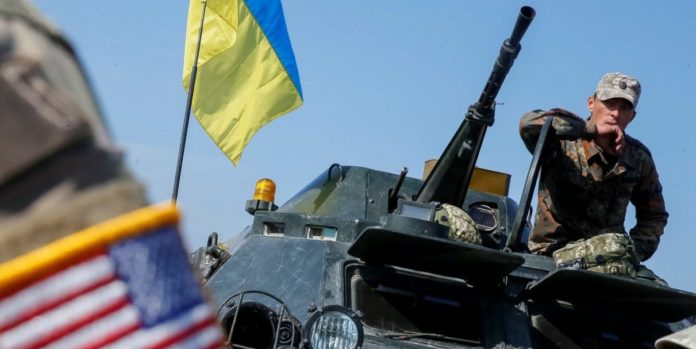The Russian troops have been forced to retreat amid a Ukrainian counteroffensive that was successful in recent weeks. However, the war continues into winter with no end in sight.
The Ukrainians depend on U.S. aid in defending their homeland. As European powers balance supporting President Volodymyr Zilensky, they also face an energy crisis that is made worse by the green energy policies of their country and their dependence on Russian oil. In the meantime, America’s most formidable international foe in Beijing is looking at Taiwan. This could be another strategic nightmare for a Biden government that has been prone to foreign policy mistakes.
Experts in the U.S. are debating how to address the current list foreign policy challenges. The public is bombarded with ideologic perspectives that range from nationalistic isolationism and global interventionism. According to Dr. William Ruger of the American Institute of Economic Research, there is a better way to deal with America’s foreign policy problems.
It is a realist approach, he says.
Ruger, a former Afghanistan vet, was appointed by President Donald Trump as the U.S. Ambassador to Afghanistan. He explained that the U.S. had been “chain-ganged” into foreign conflict by European powers such as when America intervened in Syria in 2014 under former President Barack Obama. The United States is the leader of the free globalist and often bows to its allies, resulting in the U.S. paying the bills.
According to the Kiel Institute for the World Economy, the U.S. has already contributed upwards of $40 Billion to Ukraine since January. This is more than any other country combined. The American government’s support to Ukraine in military operations has no doubt helped it defeat its Russian invaders. After seven months of fighting, Vladimir Putin’s forces have caused destruction and death, but are still far from a complete takeover.
The Ukrainian counteroffensive also successfully drove Russian forces out of two eastern Ukrainian regions. This country of 44 million people has stood up valiantly to resist Russia’s army. It also shows the world that Putin’s growl is exaggerated. Zelensky, an optimist, says that his country needs to be able to stop the war for a certain amount of time. “We can return all of the Ukrainian flags to our territory. The Ukrainian president stated Wednesday that he could do it using the force of arms. “But we need to wait.”
How much longer can the U.S. taxpayers continue to fund Ukraine’s defense? Are there financial limits on U.S. assistance to Ukraine? Or should the Biden administration do what it takes to keep Zelensky’s army afloat?
Ruger stated that while he supports Ukraine’s independence struggle, he is “also a realist” who worries about the rhetoric used in Washington by leaders to discuss their commitment to support Ukraine in war.
According to the Charles Koch Institute’s former vice president for policy and research, the lessons from World War II are still deeply ingrained in Americans’ minds. However, these picture-book lessons don’t accurately reflect the forces that surround a war. Ruger stressed that wars do not end with the popular battleship peace treaties or victory parades people think of.
For bloodshed to stop, it is important for countries to be open to compromise. The U.S. must focus its attention on the most important issues facing Ukraine when it comes to foreign leaders.
Ruger said that while it is possible to be realistic and sympathize with Ukraine, sympathy for Ukraine “doesn’t necessarily mean that the United States’ national interests are at risk.” “We must calibrate our efforts relative our interests, and not the interests Ukraine.”
Ruger advocates for considering all issues and making decisions based on the best interests of America. Ruger believes that America must now give more responsibility to Europe.




